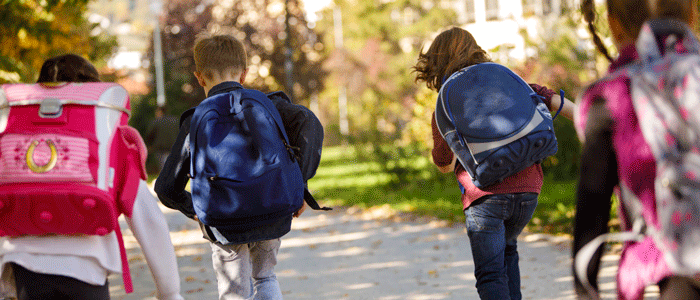By Lexi Livelsberger
Children's Advocacy Coordinator, PCAR
It feels like an everyday occurrence, hearing about the most recent disclosure of sexual assault in the media. It’s such a significant time to work in the field of sexual violence as we rally around survivors and find renewed passion in their strength and resilience.
It’s also a significant and challenging time to be a parent.
I find myself searching for the words to explain complicated topics to my own children. I look for answers to “What can I do to protect them?” I too feel overwhelmed by my responsibility to keep them safe.
If I know anything about being a parent it’s that every day is trial and error, some days I get it mostly right but most days I don’t. Parenting doesn’t have to be perfect. Our children don’t need us to be flawless but they do need us to be open and honest, even when conversations are hard.
Here are some simple things to help you tackle these conversations with your child while also building their resilience and keeping them safer.
Talk openly
If you’re a parent you already know that time passes too quickly with kids. If you avoid the conversation now (i.e. “we’ll talk about that when you’re older.”) you’ll miss the opportunity to show your child that you are “askable” or willing to talk about all kinds of subjects, even topics like relationships and abuse. Research shows us that having a connection to caring adults helps to protect children from abuse.
Use moments that happen every day as opportunities to talk with your child. (Thank you to the elementary teachers at back-to-school night who hugged my kids. It gave me a natural opportunity to remind them that they always get to make choices about their bodies and have those boundaries respected, even by their favorite teacher.)
Answer their questions
When it comes to explaining complicated topics, stick to this simple method: Brief, Honest and Age-Okay (PCAVT, 2017). This works for any question that could possibly come your way like this doozy I got recently, “How do they get the ashes after animals die?” but also works well for questions about bodies and abuse.
First, try asking the question back to your child, “That’s a really good question, what do you think?” Their answer will tell you what they already know and if it’s correct information or not (and it will buy you some time to figure out how you want to answer their question!).
Then, talk at your child’s developmental level, answer honestly and give enough information to satisfy their curiosity (it’s likely not as much information as you think). Practice on the easier questions now so you’re ready to answer more difficult questions later.
Don’t be afraid to make mistakes. Be honest when you don’t know the answer to a question, need to get more information, or got it wrong. If you’re having ongoing conversations with your child then you’ll get lots of chances to get it right.
Know that you’re not alone in this; there are lots of other parents having these same thoughts right now and people in your own community that can help. Your local sexual assault center provides free and confidential counseling and advocacy for children and adults, no matter when abuse has happened. Ask them about Parents In the Know, a program to help you learn additional ways to protect children from sexual abuse.






